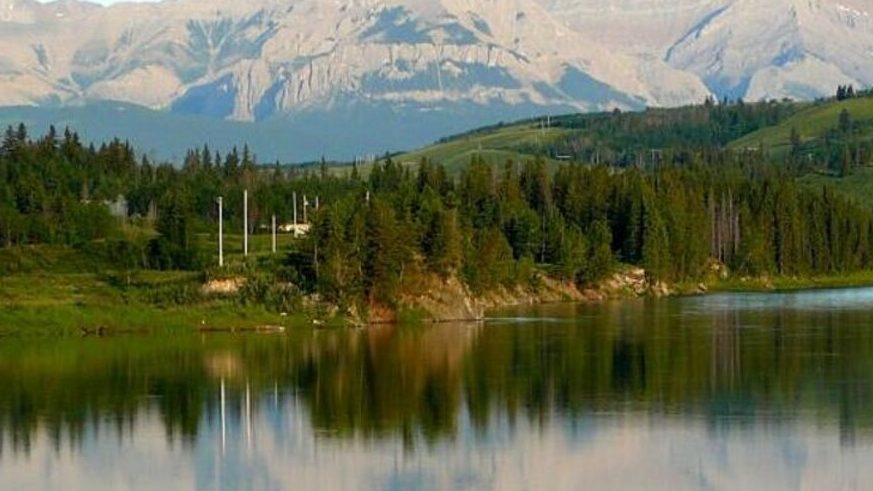
Morley’s traditional name, Mînî Thnî, has been reclaimed, Stoney Nakoda First Nations announced Thursday.
The Stoney Nakoda First Nations, which comprises Bearspaw, Chiniki, and Goodstoney First Nation, says the name re-establishes Stoney authority, and “symbolizes our sovereignty,” along with reinforcing their connections to their “home and Îyãrhé Nakoda Makoche.”
“This renaming is more than just a change of name; it’s a reclamation of our identity and our history,” said Chief Clifford Poucette of Goodstoney First Nation, in a Stoney Nakoda Nations news release.
“Mînî Thnî, which means ‘cold water,’ reconnects us to our ancestors and sacred lands. It is a powerful symbol of our resilience and our journey towards healing, reconciliation and decolonization.”
An event was held to celebrate the reclaimed name, which included a traditional pipe ceremony, a grand entrance, and a community luncheon that symbolizes a “profound affirmation of Stoney identity, sovereignty, and cultural heritage.”
“The transition from Morley to Mînî Thnî marks a significant step forward in our ongoing journey of self-determination and cultural revival. It is an opportunity for us to renew our commitment to preserving and celebrating our traditions, our language, and to move forward with a renewed sense of purpose and unity,” said Chief Darcy Dixon of Beaspaw First Nation.
Stoney Nakoda says the Morley name is tied to colonialism, starting with the opening of the Morley Day School in 1873, the establishment of the Morleyville Methodist Mission Site in 1875, the signing of Treaty 7 in 1877, and the designation of the Morley Reserve.
Once the Morley Reserve survey was completed in 1879, the Stoney says it immediately began to petition that the lands were insufficient and not in keeping with what was promised at the Treaty.
Rabbit Lake Reserve was then added in 1918, and later the Eden Valley Reserve and Bighorn Reserve in 1947 and 1948 respectively.
“Morley was selected simply because a white settler (Reverend Morley Punshon) had opened a store and post office along the railroad at the location of the current townsite,” the release reads.
“Morleyville was one of the first settlements along the Bow River. Its establishment contributed to the ongoing dispossession of the Stoney people by allowing ranching and agricultural communities to take up lands.”
The Stoney Nakoda Nations release says the most profound impacts of Canadian residential schools include loss of language, loss of culture, loss of self, abuse, intergenerational trauma, and loss of life.
Reclaiming the Stoney name is an important step forward in “our Peoples journey of healing and reconciliation.”